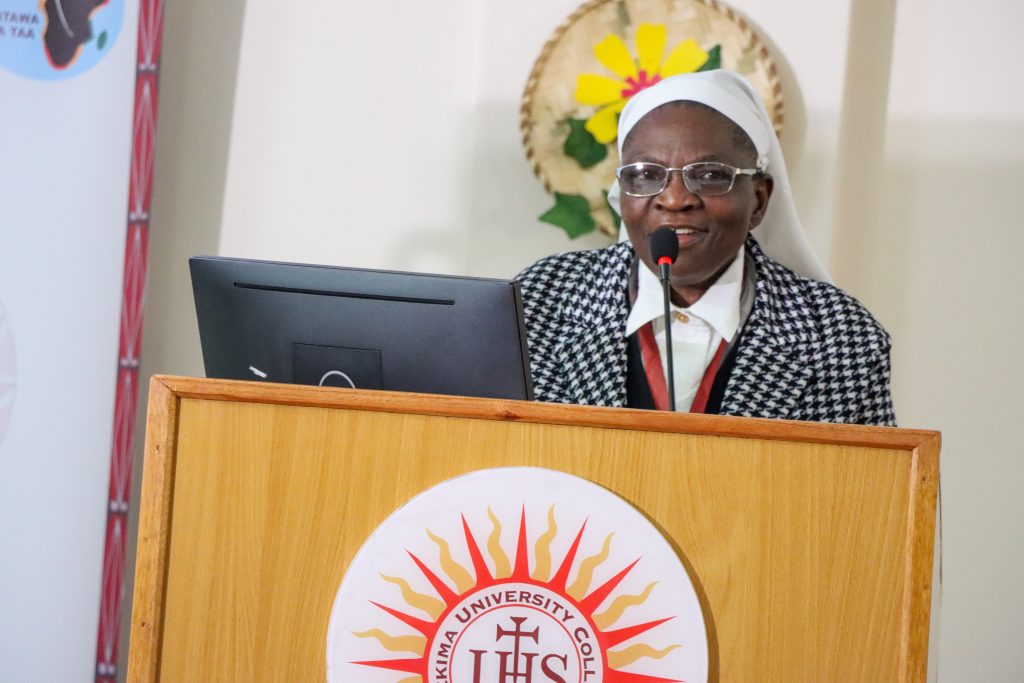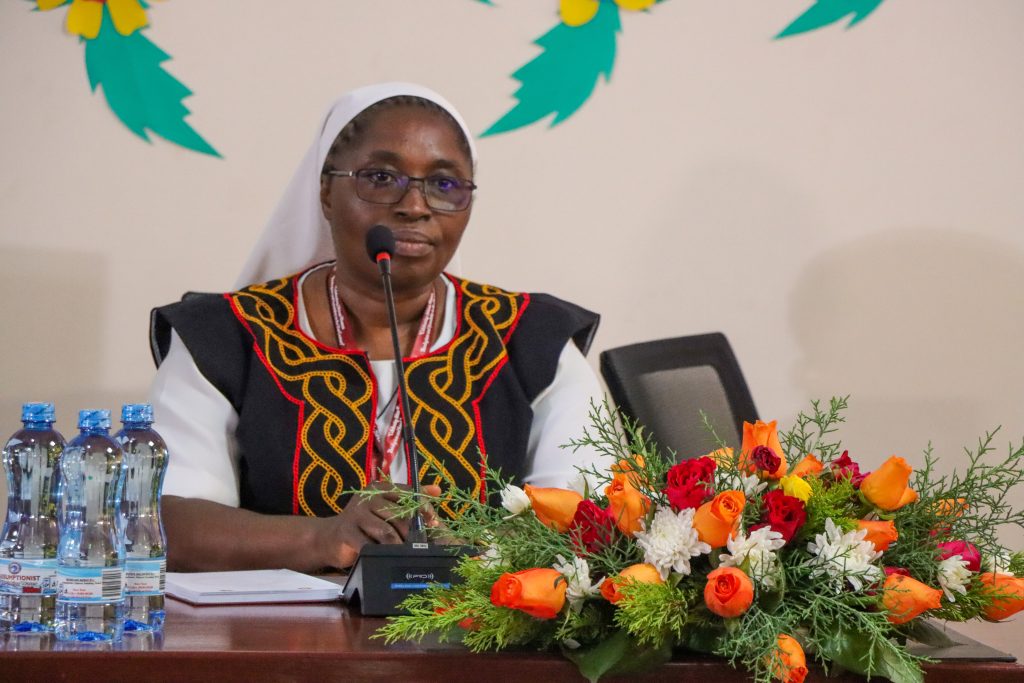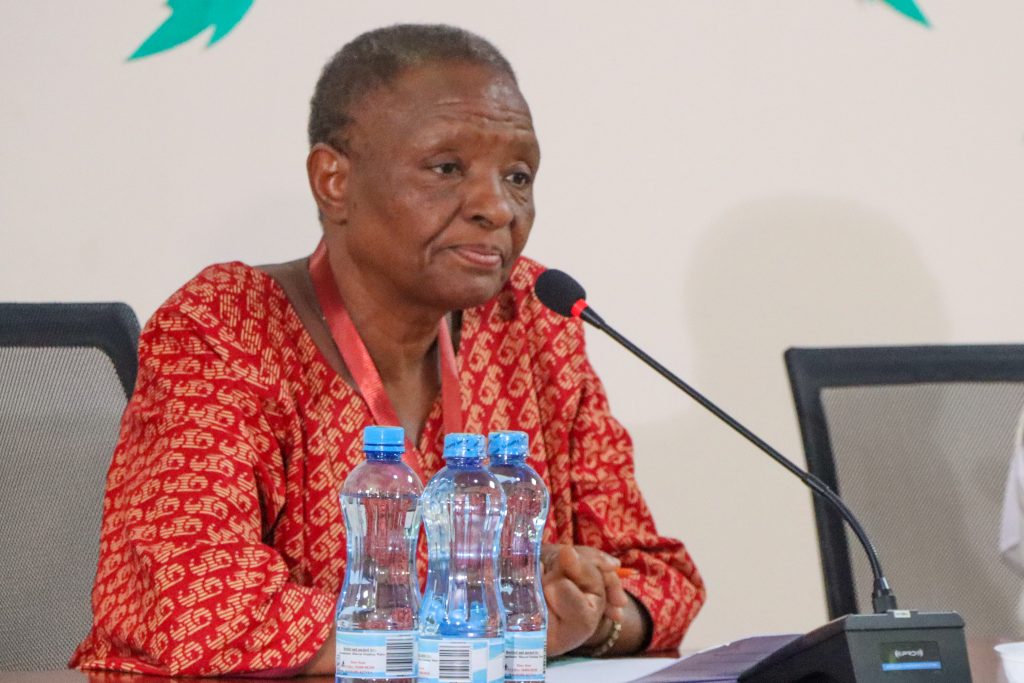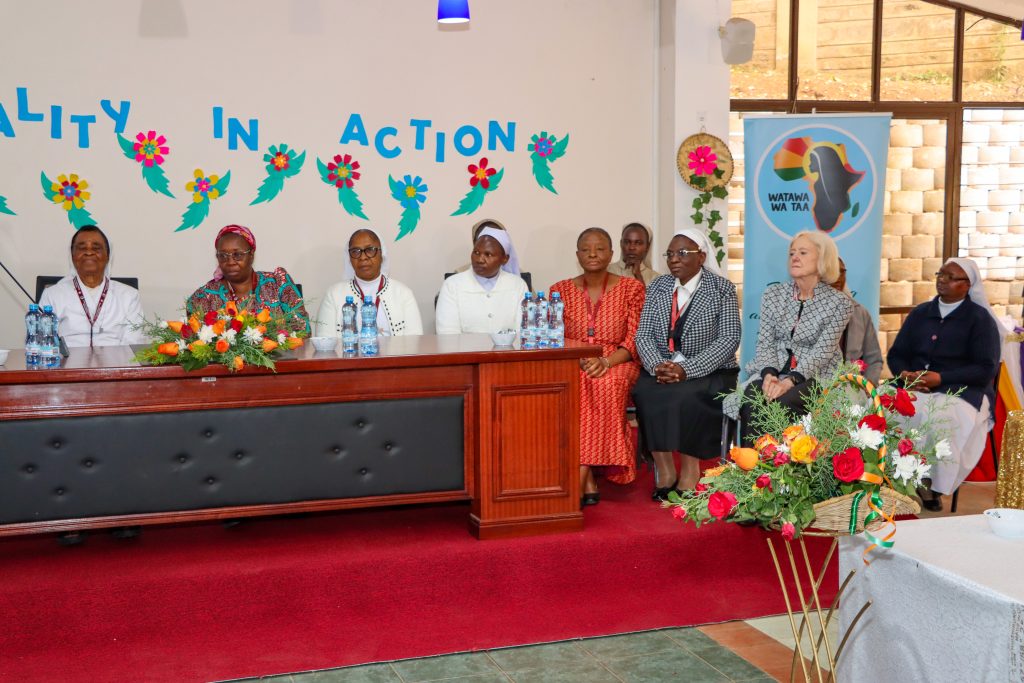On the official first day of the African Women Theologians Conference at Hekima University College, speakers pressed the Catholic Church to make safeguarding, counselling and pastoral healing central to its synodal journey, arguing that without these, Synodality cannot be authentic.
The conference, co-organized by Hekima University College, Watawa wa Taa, and the Doctoral Scholarship for African Women Theologians, placed safeguarding at the heart of conversations about Synodality and ecclesial credibility.
Sr. Dr. Mercy Shumbamhini, CJ (Arrupe Jesuit University) opened the discussion with a direct moral challenge: “The Synod on Synodality is not simply a process. It is an invitation of the Spirit, a call to become a listening, healing, and inclusive Church.” She insisted that safeguarding must be theological and pastoral, not only bureaucratic: “Safeguarding is not merely a set of procedures, it is a sacred mission. When we protect the dignity of every person, especially those who have been wounded, we do more than follow guidelines, we embody the very essence of the Church Christ calls us to be.”

Sr. Shumbamhini drew on African storytelling and pastoral practice to make her point: “In Africa, storytelling is sacred… ‘Until the lion learns to write, every story will glorify the hunter.’ True justice and transformation begin when the unheard find their voice.” She emphasised the urgency of addressing trauma and silence in African contexts and offered six practical proposals: the creation of local structures for listening and protection (inclusive teams of laypeople, youth, women and survivors), mental health integration through trauma-informed pastoral care, contextual resources (materials and reporting channels in local languages and formats), women’s leadership in safeguarding offices, survivor-centred reporting that pursues justice and healing, and formation for clergy and religious on trauma awareness and pastoral response. “Let us be the generation that creates spaces where truth is spoken, justice is pursued, and no one suffers in silence,” she urged.
Complementing that call, Sr. Gisela Rfanyu Shey, MA framed counselling as an indispensable tool for synodal healing. Shey argued that Africa’s wounds, from colonial trauma to conflict and poverty, cannot be healed by sacramental ministry alone. “For Synodality to be truly effective in Africa, it must embrace counselling as an essential tool for healing,” she declared. She defined counselling as “a principled, confidential, and professional relationship” that empowers people to name and work through suffering, and she placed it firmly within Synodality: “Within the synodal process, counselling aligns as a supportive, reflective tool. It helps individuals and communities navigate personal and relational challenges while promoting understanding, healing, and growth in faith and practice.”

Shey threaded psychology and theology together to propose a practical model: train and form pastoral agents (priests, religious, lay leaders) in basic counselling and trauma awareness; empower Small Christian Communities as listening posts; collaborate with mental-health professionals, NGOs and traditional healers; adapt counselling models to African cultural practices (storytelling, ritual, communal support); and establish diocesan and parish counselling centres that guarantee access and confidentiality. “By training pastoral agents and partnering with professionals, the Church can become a true field hospital, a place where wounds are named, stories are heard, and healing is possible,” she said.
The theme of a maternal, compassionate Church echoed across the panel. Prof. Mary Getui of the Catholic University of Eastern Africa drew on the language of motherhood and nature to underline what a healing Church should feel like. “Mothers are natural born leaders,” she said. “Mother Nature does not forget, the natural world responds to human actions. If you respect it, it will be good; if you exploit it, the consequences are dire.”

Getui linked that ecological memory to pastoral responsibility: “The Church, regarded as mother, must provide hope, warmth and companionship, and must protect the vulnerable rather than silence them.”Participants repeatedly returned to the same challenge: Synodality must be embodied in practices that protect and restore the wounded. As Sr. Shumbamhini concluded, “To safeguard the vulnerable is to safeguard the Gospel itself.” The day closed with a clear pastoral mandate for dioceses and religious communities across Africa: build counselling capacity, centre survivors in justice processes, and empower women to shape safeguarding policy, so that walking together becomes both safe and restorative.

